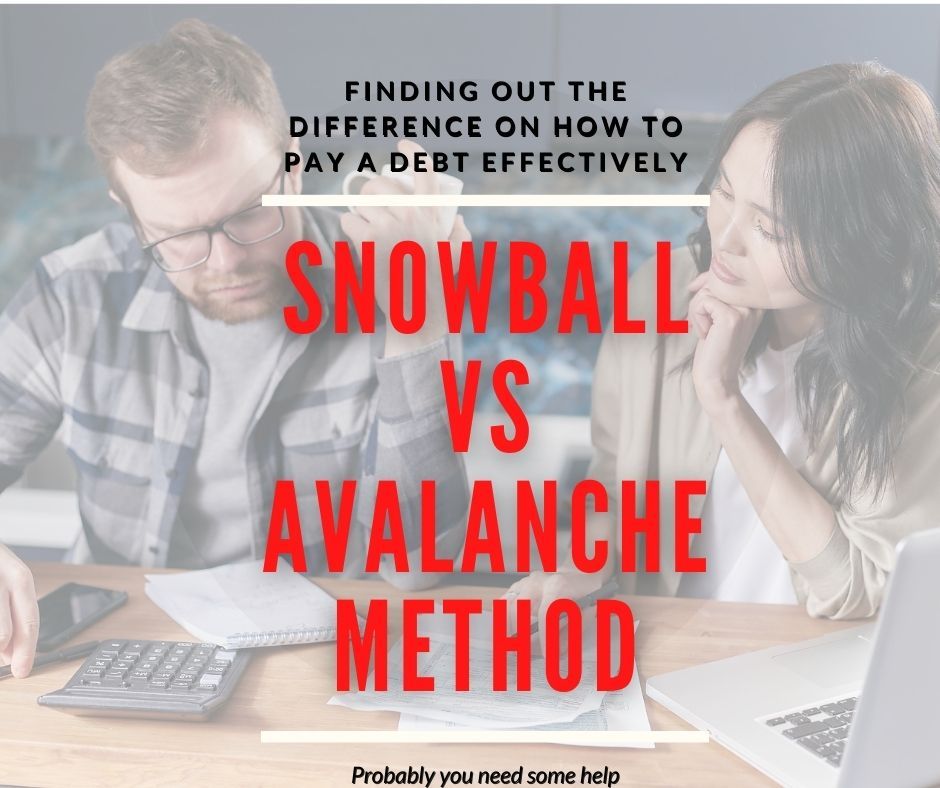Debt is something you borrowed usually in the form of money. You can take a look for a more comprehensive explanation here.
Debt can be a significant burden on your financial and personal life, causing stress and limiting your options. Fortunately, there are several strategies you can use to pay off your debt faster and gain control over your finances. In this article, we’ll explore the top 10 strategies for paying off debt quickly, with examples and links to resources to help you implement these tactics effectively.
Table of Contents
TogglePrioritize Your Debts
The first step in paying off your debts quickly is to prioritize them. Start by making a list of all your debts, including credit
cards, loans, and other obligations. Then, rank them in order of interest rate, from highest to lowest. Focus on paying off the debt with the highest interest
rate first, while still making minimum payments on your other debts.
For example, if you have a credit card with a 15% interest rate and a car loan with a 5% interest rate, focus on paying off the credit card first. Once you have paid off the credit card, you can apply the extra money towards your car loan.
Use the Debt Snowball Method
The debt snowball method is a popular strategy for paying off debt quickly. This method involves focusing on paying off your
smallest debts first, then moving on to larger debts. By paying off smaller debts first, you will gain momentum and motivation to continue paying off your larger debts.
To use the debt snowball method, start by making a list of all your debts, including their balances and interest rates. Then, order the debts from smallest to largest based on their balances. Focus on paying off the smallest debt first while making minimum payments on your other debts. Once you have paid off the smallest debt, move on to the next smallest debt, and so on.
For example, if you have a credit card with a $5000 balance and a $20,000 car loan, focus on paying off the credit card first. Once you have paid off the credit card, move on to the car loan.
Consider a Balance Transfer
If you have high-interest credit card debt, a balance transfer can be an effective way to lower your interest rate and pay off your debt faster. A balance transfer involves transferring your credit card balance to a new credit card with a lower interest rate. Many credit card companies offer balance transfer promotions with 0% interest rates for a certain period, usually 12-18 months.
To use a balance transfer, start by researching credit cards with balance transfer promotions. Look for a card with a 0% interest rate for at least 12 months and a low balance transfer fee. Once you have found a suitable card, apply for it and transfer your balance. Then, focus on paying off your balance before the promotional period ends.
Make Extra Payments
Making extra payments on your debt can help you pay it off faster and save money on interest. Even small extra payments can make a significant difference in the end.
To make extra payments, start by reviewing your budget and identifying areas where you can cut back on expenses. Use the money you save to make extra payments on your debt. You can also consider making biweekly payments instead of monthly payments. By making payments every two weeks, you will make an extra payment each year.
For example, if you have a $10,000 car loan with a 5% interest rate and a 5-year term, making an extra $50 payment each month can save you $550 in interest and help you pay off your loan 10 months early.
Use Windfalls and Bonuses or other extra money
If you receive windfalls or bonuses, such as tax refunds or work bonuses, use them to pay off your debt faster. Applying these unexpected funds towards your debt can help you make significant progress towards becoming debt-free.
For example, if you receive a $2,000 tax refund and have a credit card balance of $5,000, apply the refund towards your credit card debt. This will reduce your balance to $3,000, making it easier to pay off your debt faster.
Cut Back on Expenses
Cutting back on expenses is a crucial strategy for paying off debt faster. Look for ways to reduce your expenses, such as eating out less, cancelling subscriptions you don’t use, and reducing your utility bills.
To cut back on expenses, start by reviewing your budget and identifying areas where you can save money. Look for ways to reduce your expenses without sacrificing your quality of life. For example, you can save money on groceries by buying in bulk or cooking meals at home instead of eating out.
Consider Debt Consolidation
Debt consolidation involves combining multiple debts into a single loan with a lower interest rate. This can help you simplify your finances and reduce your monthly payments, making it easier to pay off your debt faster.
To consolidate your debt, start by researching debt consolidation loans and personal loans. Look for loans with low interest rates and reasonable terms. Once you have found a suitable loan, use it to pay off your existing debts. Then, focus on paying off your new loan as quickly as possible.
Negotiate with Your Creditors
If you are struggling to make your monthly payments, consider negotiating with your creditors. Many creditors are willing to work with you to create a payment plan that fits your budget.
To negotiate with your creditors, start by contacting them and explaining your situation. Be honest about your financial situation and ask if they can lower your interest rate or reduce your monthly payments. You can also consider working with a credit-counselling agency to help you negotiate with your creditors.
Seek Professional Help
If you are struggling to pay off your debt on your own, consider seeking professional help. A financial advisor or credit counsellor can help you create a plan to pay off your debt faster and manage your finances more effectively.
To find a financial advisor or credit counsellor, start by asking for recommendations from friends and family. You can also search online for local professionals in your area. Look for professionals with experience working with clients in similar situations to yours.
Stay Motivated
Paying off debt can be a long and challenging process, but staying motivated is crucial to your success. Look for ways to stay motivated, such as tracking your progress, celebrating small victories, and reminding yourself of your financial goals.
To stay motivated, start by setting specific and achievable goals for paying off your debt. Track your progress regularly and celebrate each milestone you reach. You can also consider using a debt payoff app or calculator to help you stay on track.
Conclusion:
Paying off your debt faster is possible with the right strategies and mindset. Start by prioritizing your debts, using the debt snowball method, and considering a balance transfer. Make extra payments, use windfalls and bonuses, and cut back on expenses. Consider debt consolidation, negotiate with your creditors, and seek professional help if necessary. Finally, stay motivated and focused on your financial goals. With these strategies, you can become debt-free and regain control over your finances




